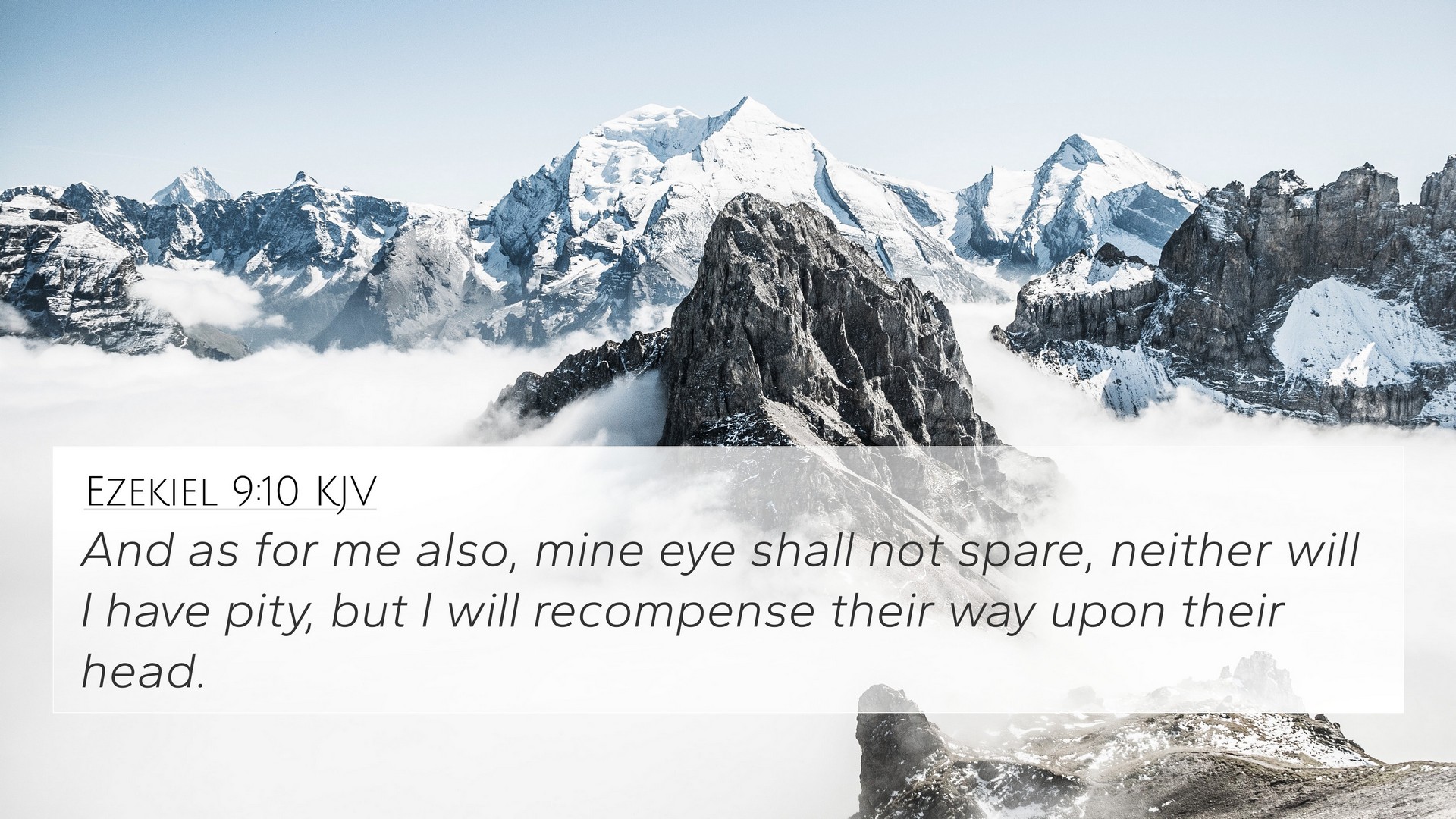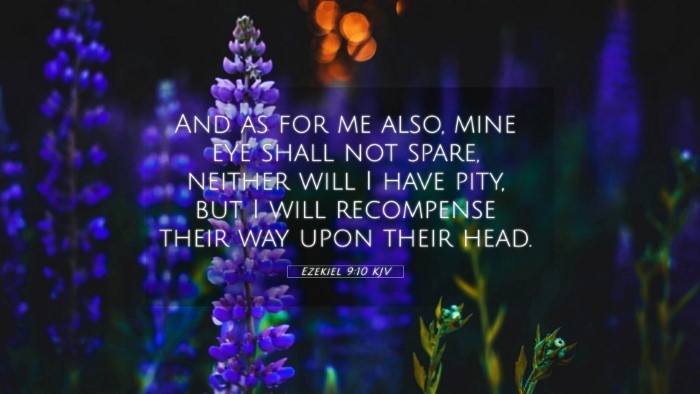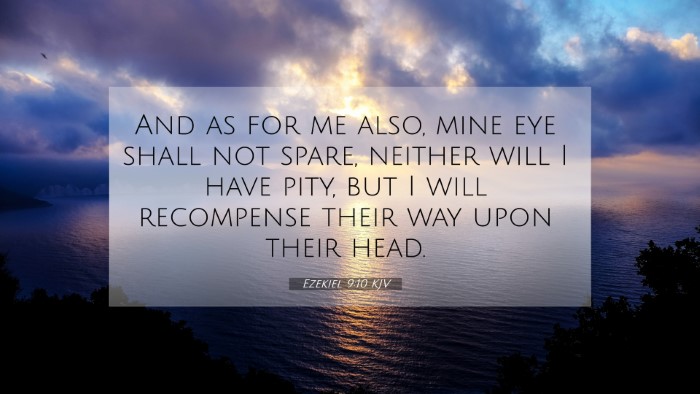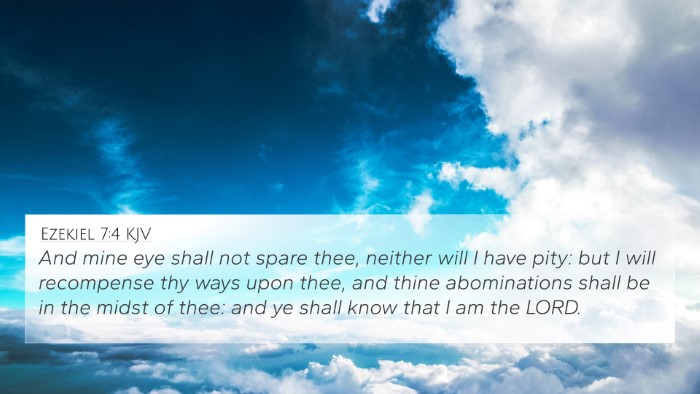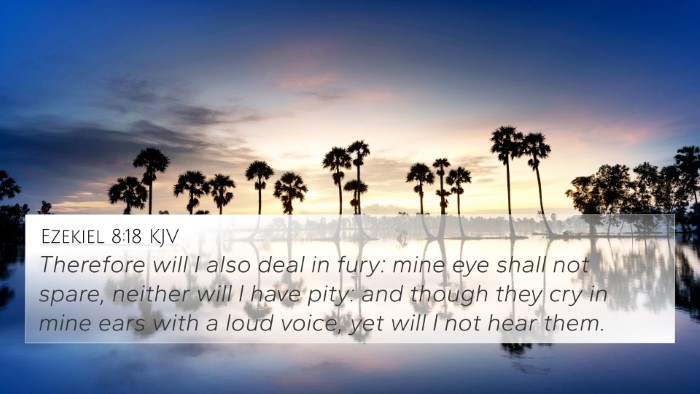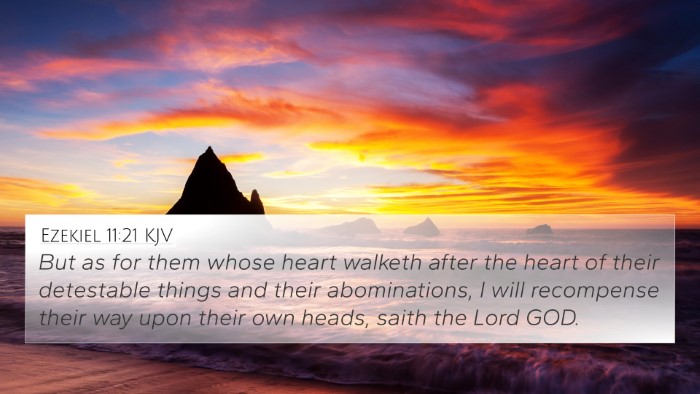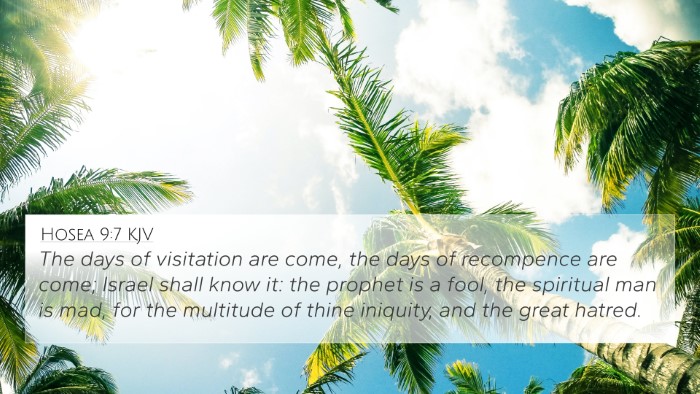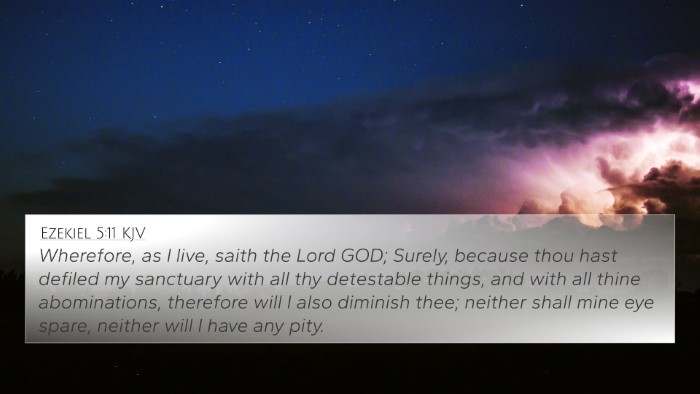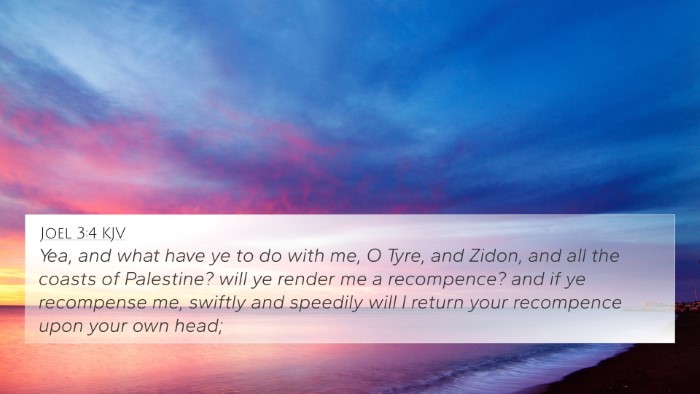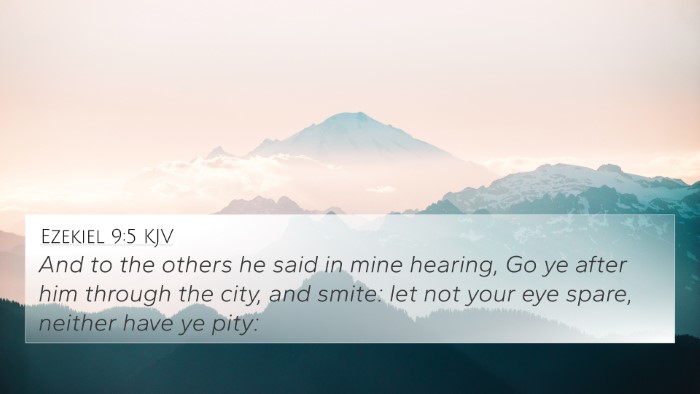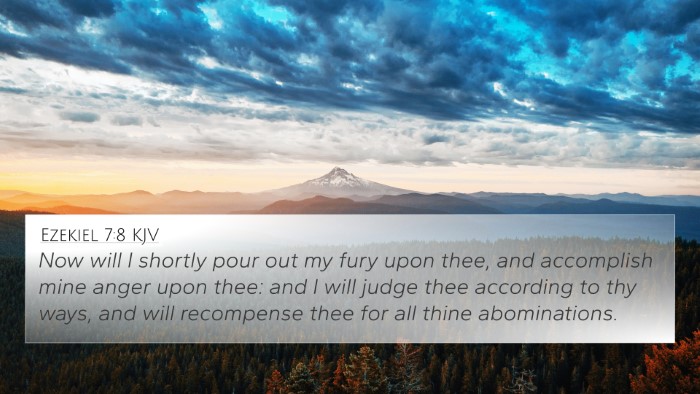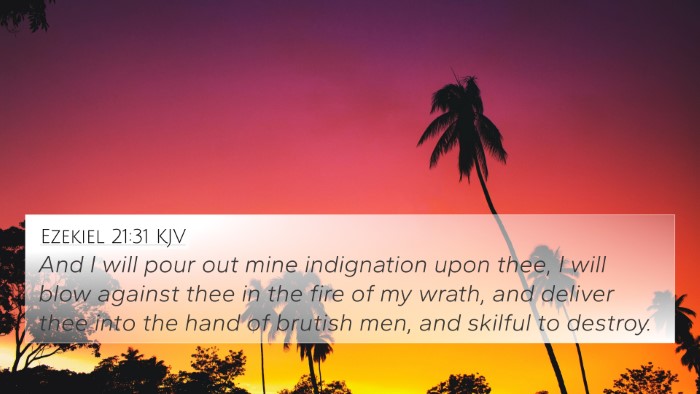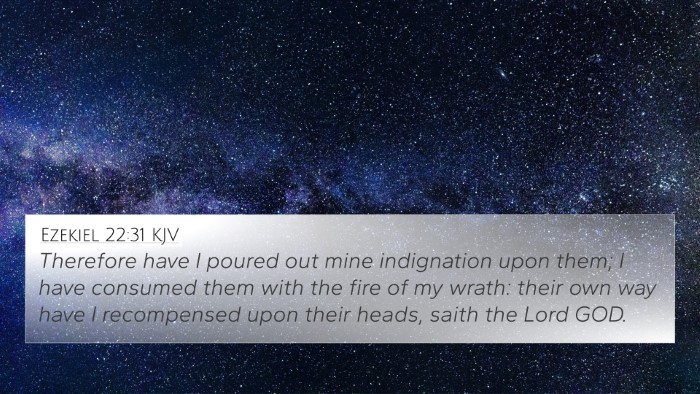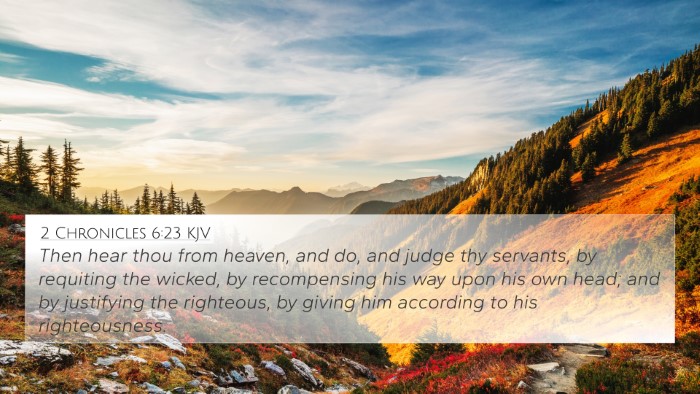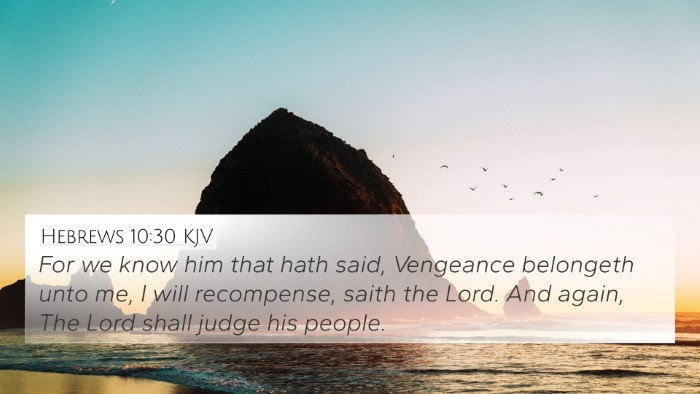Ezekiel 9:10 - Verse Meaning and Interpretation
Bible Verse: Ezekiel 9:10 - "As for me, my eye will not spare, nor will I have pity; but I will bring their conduct upon their heads."
This verse occurs in a context where divine judgment is being pronounced against the inhabitants of Jerusalem for their persistent sinfulness. The harsh tone indicates the seriousness of God's response to sin. By combining insights from Matthew Henry, Albert Barnes, and Adam Clarke, we can gain a deeper understanding of the meaning behind this verse.
Contextual Background
The book of Ezekiel is largely focused on the themes of judgment and restoration. The prophet Ezekiel speaks during a time of national crisis for Israel, and this particular chapter describes a vision of a divine executioner marking those who sigh and cry over the abominations committed in Jerusalem.
Insights from Public Domain Commentaries
-
Matthew Henry:
Henry emphasizes the severity of divine justice. God’s judgment is impartial; the lack of pity signifies that the results of one's actions will return upon them. The phrase "bring their conduct upon their heads" communicates the principle of retribution, where the deeds of the wicked ultimately lead to their downfall.
-
Albert Barnes:
Barnes sheds light on the judicial nature of God's wrath. He posits that the term "my eye will not spare" signifies that God's judgment will not be swayed by personal biases; the measure of sin will be fully accounted. This conveys a deep sense of inevitability in divine retribution, echoing themes found throughout Scripture.
-
Adam Clarke:
Clarke discusses the prophetic implications of this judgment, linking it to the broader narrative of restoration. He notes that the stark language serves to illustrate the gravity of Israel's sin and the resultant consequence; thus, God’s judgment becomes a precursor to His merciful reconciliation with the faithful remnant.
Thematic Connections
This verse's themes resonate with various other biblical texts. Below are some cross-references that illuminate its meaning further:
- Jeremiah 50:31: Highlights God's assertion against proud nations, underpinning similar themes of judgment.
- Ezekiel 18:30: Calls for repentance, emphasizing that judgment is not arbitrary but reflects one's actions.
- Galatians 6:7: "Whatever one sows, that will he also reap," tying into the concept of retribution found in Ezekiel 9:10.
- Matthew 7:2: Suggests that judgment will align with the measure used, echoing the principle of divine justice.
- Romans 1:18: Discusses God’s wrath being revealed against all ungodliness, parallel to the judgment in Ezekiel.
- Revelation 20:12: Illustrates the final judgment where deeds are judged, resonating with the theme of consequences in Ezekiel.
- 2 Thessalonians 1:6: Reflects on God's righteous judgment manifesting against those who afflict His people.
- Proverbs 14:14: Notes that the backslider in heart will be filled with his own ways, aligning with the retribution theme.
- Matthew 23:35: Jesus speaks of judgment upon the religious leaders for their transgressions, echoing the same grim reality portrayed in Ezekiel.
- 1 Peter 4:5: Indicates that all will give an account to the One who judges impartially, mirroring the stark reality in Ezekiel 9:10.
Understanding Divine Judgment
Through the lens of these commentaries, we can understand Ezekiel 9:10 as a profound declaration of God's holiness and justice. Each mentioned cross-reference contributes to a broader understanding of divine retribution, reinforcing that God's judgments are rooted in His character and the moral order established in creation.
Practical Application
For believers today, this verse serves as a solemn reminder of the consequences of sin. The call to integrity and repentance is clear; God is not indifferent to human behavior. The connection between our actions and judgments is pivotal in both the Old and New Testament, encouraging a life led by righteousness.
Tools for Bible Cross-Referencing
To explore the connections and themes found in scripture like Ezekiel 9:10, various resources can assist in detailed study:
- Utilizing a Bible concordance to find thematic links.
- Employing a Bible cross-reference guide for deeper study insights.
- Engaging in cross-reference Bible study to understand relationships.
- Implementing cross-referencing Bible study methods for a richer comprehension of scripture.
- Accessing Bible reference resources within study Bibles to enhance understanding.
Conclusion
Understanding Ezekiel 9:10 requires examining the context of God’s judgment and its implications for humanity. By referencing and analyzing related scriptures, we can appreciate the consistent narrative of divine justice throughout the Bible. This approach not only enriches one’s understanding of Ezekiel but also deepens the overall engagement with biblical texts.
